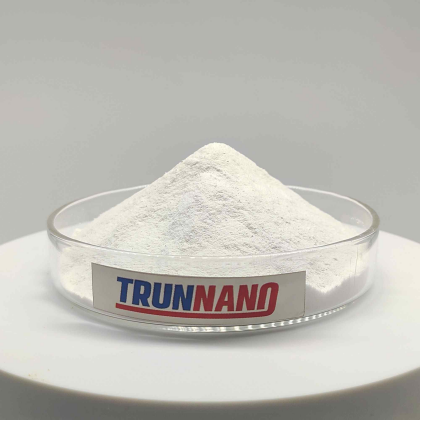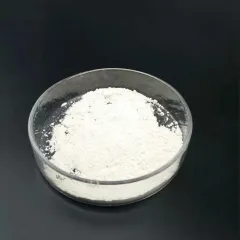Comparative Analysis of the Application of Polystyrene Microspheres and Polystyrene Carboxyl Microspheres in Biotechnology – Focusing on Nucleic Acid Removal.
(LNJNbio Polystyrene Microspheres)
In the field of contemporary biotechnology, microsphere products are extensively made use of in the extraction and purification of DNA and RNA because of their high particular surface area, excellent chemical security and functionalized surface buildings. Amongst them, polystyrene (PS) microspheres and their derived polystyrene carboxyl (CPS) microspheres are among the two most extensively researched and used products. This post is given with technological assistance and information evaluation by Shanghai Lingjun Biotechnology Co., Ltd., aiming to methodically compare the performance distinctions of these two sorts of products in the procedure of nucleic acid extraction, covering vital indicators such as their physicochemical properties, surface area adjustment capability, binding performance and recuperation price, and show their appropriate circumstances through experimental information.
Polystyrene microspheres are homogeneous polymer bits polymerized from styrene monomers with great thermal security and mechanical toughness. Its surface area is a non-polar framework and normally does not have active functional groups. For that reason, when it is straight used for nucleic acid binding, it needs to rely on electrostatic adsorption or hydrophobic activity for molecular fixation. Polystyrene carboxyl microspheres present carboxyl useful teams (– COOH) on the basis of PS microspheres, making their surface area with the ability of additional chemical coupling. These carboxyl teams can be covalently adhered to nucleic acid probes, proteins or other ligands with amino groups through activation systems such as EDC/NHS, therefore accomplishing a lot more stable molecular addiction. Therefore, from a structural point of view, CPS microspheres have much more benefits in functionalization possibility.
Nucleic acid extraction normally consists of actions such as cell lysis, nucleic acid launch, nucleic acid binding to solid phase carriers, washing to remove impurities and eluting target nucleic acids. In this system, microspheres play a core function as solid stage service providers. PS microspheres mainly count on electrostatic adsorption and hydrogen bonding to bind nucleic acids, and their binding efficiency is about 60 ~ 70%, but the elution performance is low, only 40 ~ 50%. On the other hand, CPS microspheres can not only use electrostatic impacts however also achieve more solid addiction with covalent bonding, decreasing the loss of nucleic acids throughout the cleaning process. Its binding effectiveness can get to 85 ~ 95%, and the elution efficiency is likewise increased to 70 ~ 80%. In addition, CPS microspheres are likewise significantly far better than PS microspheres in terms of anti-interference capacity and reusability.
In order to verify the performance distinctions between the two microspheres in actual operation, Shanghai Lingjun Biotechnology Co., Ltd. carried out RNA extraction experiments. The speculative samples were originated from HEK293 cells. After pretreatment with standard Tris-HCl barrier and proteinase K, 5 mg/mL PS and CPS microspheres were used for extraction. The results showed that the typical RNA yield drawn out by PS microspheres was 85 ng/ μL, the A260/A280 proportion was 1.82, and the RIN worth was 7.2, while the RNA yield of CPS microspheres was enhanced to 132 ng/ μL, the A260/A280 ratio was close to the optimal worth of 1.91, and the RIN value got to 8.1. Although the operation time of CPS microspheres is somewhat longer (28 mins vs. 25 mins) and the expense is greater (28 yuan vs. 18 yuan/time), its removal top quality is significantly improved, and it is preferable for high-sensitivity discovery, such as qPCR and RNA-seq.
( SEM of LNJNbio Polystyrene Microspheres)
From the viewpoint of application scenarios, PS microspheres appropriate for large-scale screening tasks and initial enrichment with low demands for binding specificity due to their affordable and basic operation. However, their nucleic acid binding capacity is weak and conveniently influenced by salt ion concentration, making them unsuitable for long-term storage space or repeated usage. In contrast, CPS microspheres are suitable for trace example removal as a result of their rich surface area useful teams, which facilitate additional functionalization and can be made use of to create magnetic grain discovery packages and automated nucleic acid extraction systems. Although its preparation process is fairly intricate and the cost is reasonably high, it reveals stronger flexibility in scientific research and scientific applications with rigorous requirements on nucleic acid extraction efficiency and purity.
With the quick advancement of molecular diagnosis, genetics modifying, fluid biopsy and other fields, greater needs are positioned on the efficiency, purity and automation of nucleic acid removal. Polystyrene carboxyl microspheres are progressively replacing standard PS microspheres because of their superb binding performance and functionalizable features, coming to be the core selection of a brand-new generation of nucleic acid extraction products. Shanghai Lingjun Biotechnology Co., Ltd. is also continuously maximizing the particle dimension distribution, surface density and functionalization performance of CPS microspheres and developing matching magnetic composite microsphere items to satisfy the needs of medical diagnosis, clinical research institutions and industrial customers for top notch nucleic acid removal solutions.
Distributor
Our products are widely used in many fields, such as medical testing, genetic testing, university research, genetic breeding and more. We not only provide products but can also undertake OEM, ODM, and other needs. If you need extraction of rna, please feel free to contact us at sales01@lingjunbio.com.
All articles and pictures are from the Internet. If there are any copyright issues, please contact us in time to delete.
Inquiry us













